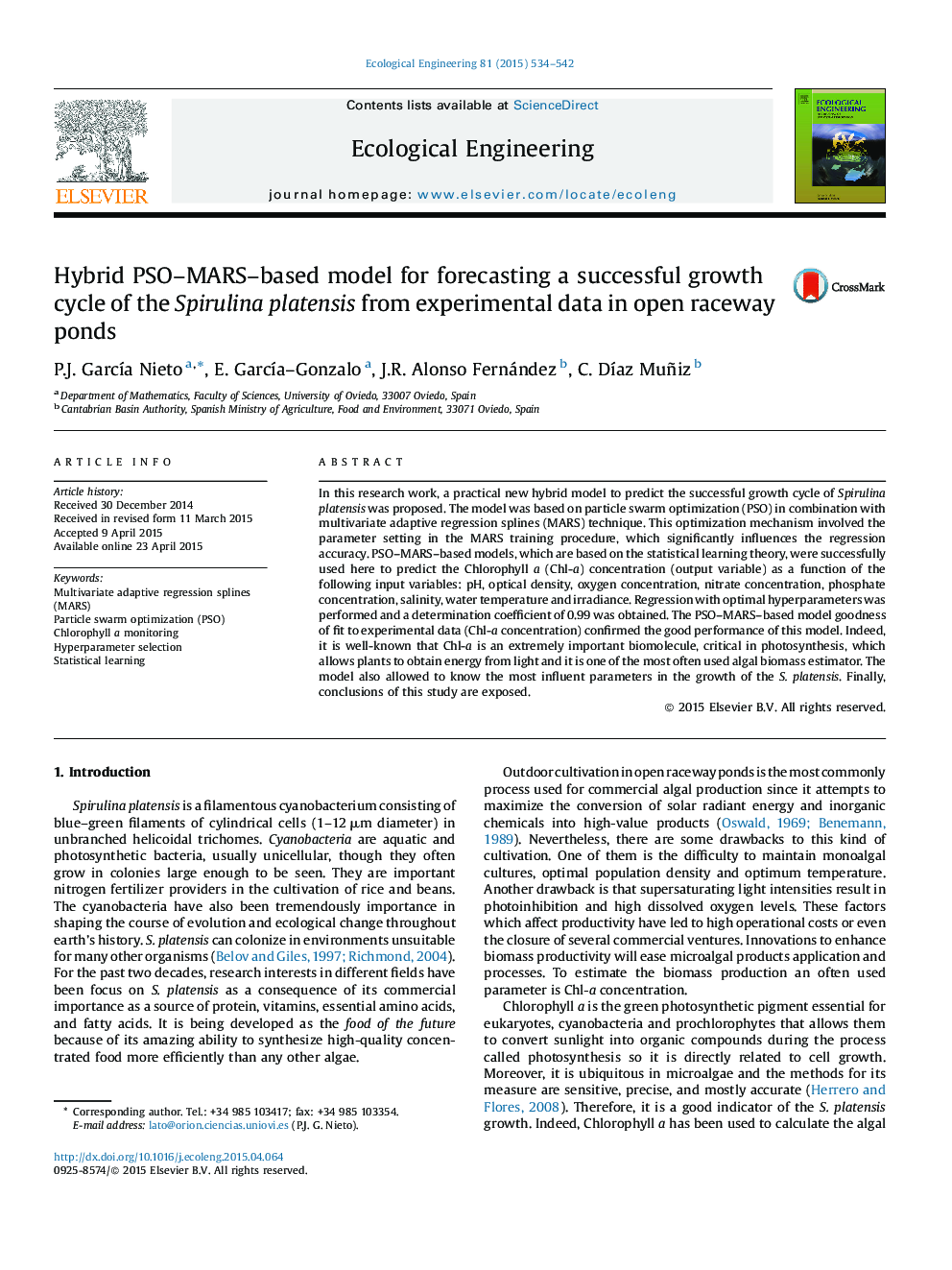| Article ID | Journal | Published Year | Pages | File Type |
|---|---|---|---|---|
| 4389111 | Ecological Engineering | 2015 | 9 Pages |
Abstract
In this research work, a practical new hybrid model to predict the successful growth cycle of Spirulina platensis was proposed. The model was based on particle swarm optimization (PSO) in combination with multivariate adaptive regression splines (MARS) technique. This optimization mechanism involved the parameter setting in the MARS training procedure, which significantly influences the regression accuracy. PSO-MARS-based models, which are based on the statistical learning theory, were successfully used here to predict the Chlorophyll a (Chl-a) concentration (output variable) as a function of the following input variables: pH, optical density, oxygen concentration, nitrate concentration, phosphate concentration, salinity, water temperature and irradiance. Regression with optimal hyperparameters was performed and a determination coefficient of 0.99 was obtained. The PSO-MARS-based model goodness of fit to experimental data (Chl-a concentration) confirmed the good performance of this model. Indeed, it is well-known that Chl-a is an extremely important biomolecule, critical in photosynthesis, which allows plants to obtain energy from light and it is one of the most often used algal biomass estimator. The model also allowed to know the most influent parameters in the growth of the S. platensis. Finally, conclusions of this study are exposed.
Keywords
Related Topics
Life Sciences
Agricultural and Biological Sciences
Ecology, Evolution, Behavior and Systematics
Authors
P.J. GarcÃa Nieto, E. GarcÃa-Gonzalo, J.R. Alonso Fernández, C. DÃaz Muñiz,
